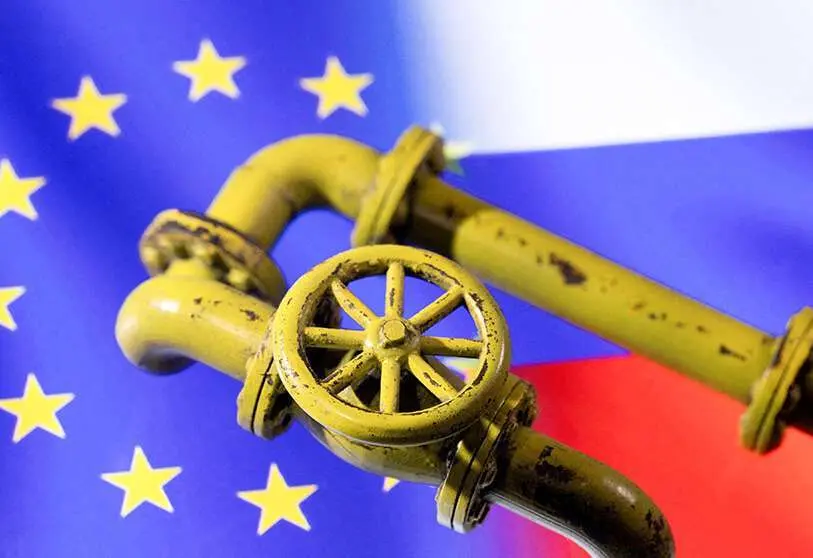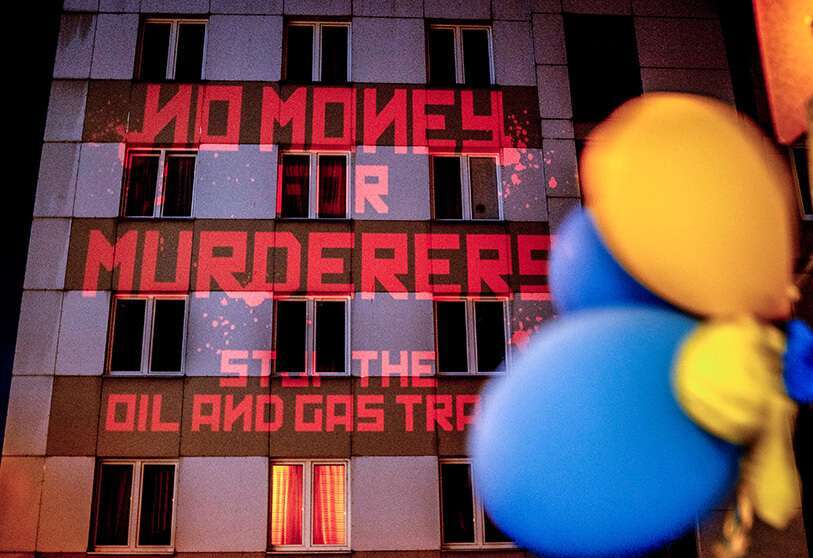Ukraine: another chapter in the global gas war

When the administration of former US President Donald Trump ordered the withdrawal of US troops from the war in Syria in October 2021, it marked the epilogue of its defeat in the gas war and the triumph of the forces backing the regime of Bashar al-Assad.
A seven-year war that left a tragic toll of more than 400,000 dead, 13 million internally displaced people, 4.8 million refugees in other countries and a country totally destroyed and in ruins.
Damascus was at the centre of one of the most vicious international wars over the control of pipeline routes from the Middle East to Europe. Part of the spark that triggered the war was the four seas connection project with which the regime of Bashar al-Assad sought to turn his country into the great gas storage and distribution hub between Asia and Europe.
A nation whose geographical location is key to energy geopolitics in the Middle East, given that it is the gateway from Asia to Europe and a preponderant territory in the connections between the oil and gas routes from the Caucasus and the Mediterranean, Caspian, Black and Persian Gulf seas to world markets.
Bashar al-Assad's plan was to control the storage, transport and distribution of gas from the production centres of the countries in the Russian orbit and the US allies in the region to the European market. This was partly the flame that sparked the clashes between the powers and their allies in the region over the control of gas pipelines.
The Syrian regime backed Russian and Iranian gas pipeline projects and hindered those of the Americans, Europeans and their allies in the region. Favours and obstacles turned Syrian territory into a theatre of fierce struggles between the United States, Russia, Iran, China and the European powers to define their strategic interests around the control of the gas trade.
A war in which two blocs were formed. The first, led by the United States and the EU powers, Saudi Arabia, Qatar, Turkey, Israel and Qatar among others. This bloc sought to overthrow the regime of Bashar al-Assad. The second, led by Russia, Iran and China, supported his stay in power. It was a geopolitical and military tug-of-war between the US, Russia and China, given that many of the pipelines planned for gas exports from Russia, Iran and Qatar to Europe involve Syrian territory.

The withdrawal of US troops was the outcome of their defeat, which defined a new world energy order in which the Russians, Chinese and Iranians, who supported the Syrian regime, won the battle, and the big losers were the United States, Europe, Saudi Arabia, Qatar, Israel and Turkey.
The doors were opened for the Russians to develop their new gas policy towards the European and Chinese markets on the basis of four major gas pipelines in addition to those already extending through Belarus, Poland and Ukraine. The first, Nord Stream 1, is already in operation and connects with Germany. The second, Nord Stream 2, which was built and also connects to Germany via the Baltic Sea without passing through Belarus, Ukraine and Poland, whose operation was suspended at the time of the sanctions.
The third, between Russia and Bulgaria, has two branches, one passing through Greece and southern Italy and the other through Hungary and Austria. The fourth links the production centres of Syria, Iran, Iraq and Russia with China via Pakistan.
On the other hand, plans for the US and EU gas pipelines from Iraq-Syria, Turkey, Black Sea-Romania, Hungary and Austria with connections to Croatia, Slovenia and Italy and the other from Qatar via Syria to Turkey and Europe were halted. The continued rule of Bashar al-Assad has strengthened Europe's dependence on Russian gas.
45% of Europe's gas consumption comes from Russia. The US and the EU's bet in the Syrian war was to reconfigure a new map of European energy security in order to shake off Russian dependence. What the US and the EU sought to do in the war was to secure transit gas imports from Qatar but failed to do so. Now the war in Ukraine is replaying another chapter of the gas war, and the US is fighting to take Europe's gas market away from the Russians. Hence Joe Biden's administration's bid to use Ukraine as a geostrategic tool to contain Russia's energy dominance in Europe.
@j15mosquera.

